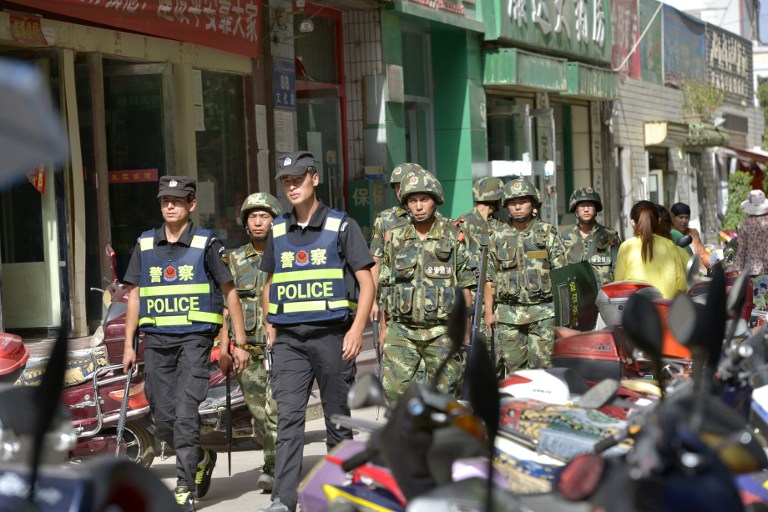
2015-04-24
A Canadian national of Uyghur ethnicity says he was harshly interrogated and pressured to spy on the Uyghur community back home during a recent trip to meet with relatives in northwest China’s Xinjiang region.
Erkin Qurban, who in 1999 moved to Canada, where he lives in Montreal working as a truck driver, told RFA’s Uyghur Service that the public security bureau in the Xinjiang capital Urumqi called him in to speak with them only three days after his arrival to the region in April last year.
“Four people interrogated me for about 10 hours the first time—there was on Uyghur and three [ethnic] Han Chinese, all of whom spoke fluent Uyghur,” he said.
“Their questions were really harsh and non-stop—mostly to do with my leading some political activities and joining in anti-China demonstrations.”
Qurban told authorities that he had helped to organize a reception for the exile World Uyghur Congress in 2008, but maintained that they had no right to detain him as a Canadian national—having recently received his citizenship—and that he had traveled to China on a legal visa to visit his relatives.
“I also reminded them that it was illegal, according to their own laws, to pressure people and harshly interrogate them—that is why they prolonged the session,” he said.
About one week later, the public security bureau ordered him to return to their office, asking him the same questions over a three-hour period.
“I asked them what they planned to do with me and they threatened to deport me back to Canada,” he said.
“I said if they wanted to deport me, they could go ahead, but if my life or my safety came under threat, the Canadian government would hold them responsible.”
Qurban said his interrogators then began to pressure him to send reports on the Uyghur community back in Canada to Chinese handlers based there.
“They said, ‘People like you are our enemies. We will wipe you out for sure.’ They pressured me to send information on Uyghur activities to them and to spy for them after I returned home,” he said.
“They said, ‘We have special people there. All you have to do is give the information to them.’ At the end of the interrogation, for the safety of my relatives and in order to be released from the police office, I gave them a fake list of seven Uyghur community leaders.”
Widespread pressure
A report by The Globe and Mail said it had spoken with five other Uyghur-Canadians, in addition to Qurban, who had reported similar stories of detention, blackmail and even bribing by Chinese enforcement officials over the past three years to spy in their adopted country.
When asked about the allegations of interference, Wang Wentian, minister counselor at the Chinese Embassy in Ottawa, told The Globe: “I do not believe this groundless story at all.”
Exiled Uyghur sources in the U.S. have also told RFA of being contacted by Chinese authorities and pressured to spy on the Uyghur community there, adding that such phone calls have become increasingly common since China declared its own “war on terror” against Uyghur separatists in the wake of the Sept. 11, 2001 terror attacks.
Exiles in several countries from different cities have been targeted, with special pressure put on those whose families remain in Xinjiang, the sources said.
In recent years, China has launched a series of “strike hard” campaigns in Xinjiang in the name of fighting separatism, religious extremism and terrorism.
The targets of these campaigns, the minority Turkic-speaking, Muslim Uyghurs, complain of pervasive ethnic discrimination, religious repression and cultural suppression by China’s communist government.
Uyghurs say they chafe under strict police scrutiny and controls on their movements, and that violent clashes with authorities are not uncommon in the region.
Reported by RFA’s Uyghur Service. Translated by Mamatjan Juma. Written in English by Joshua Lipes.
